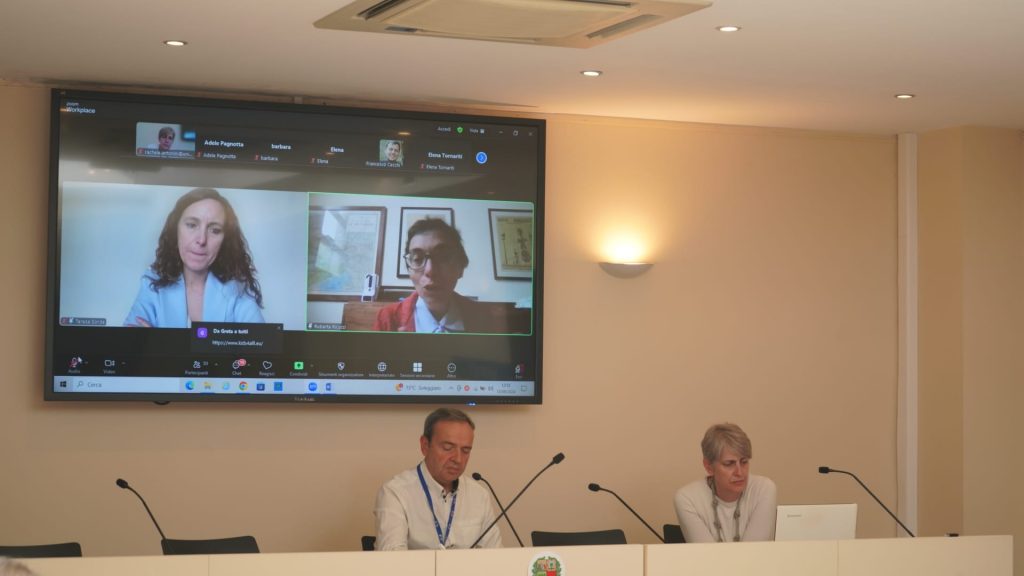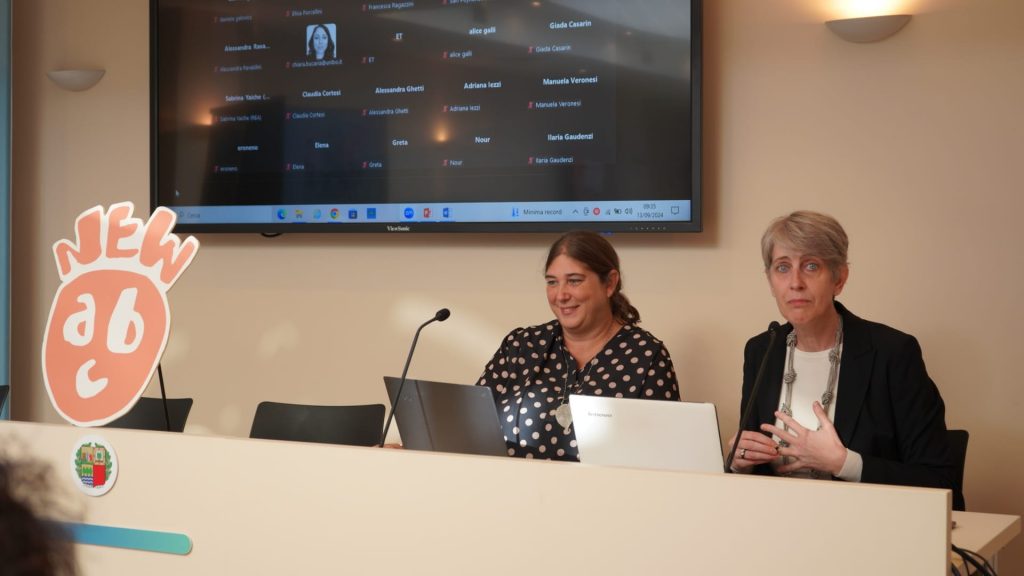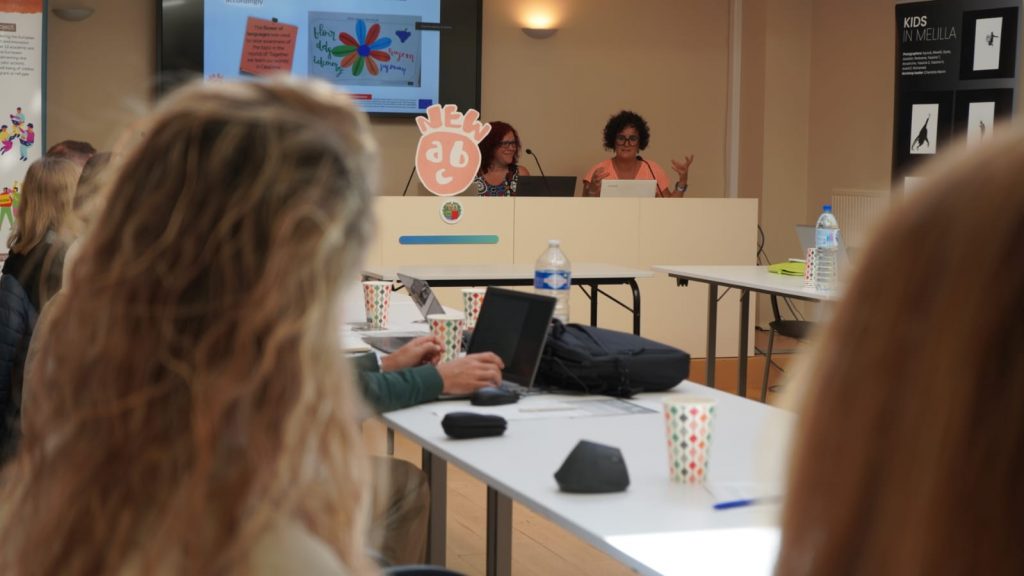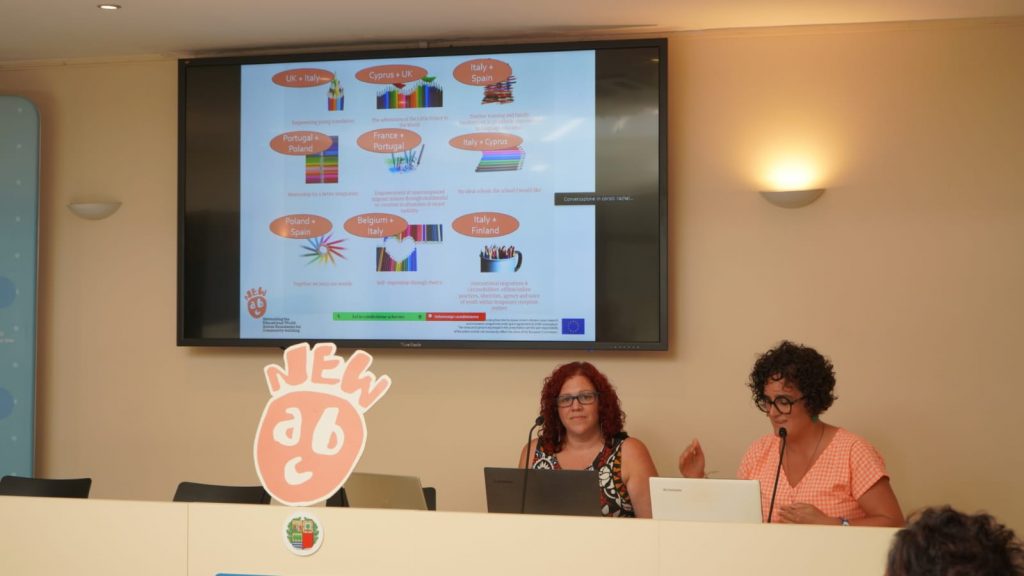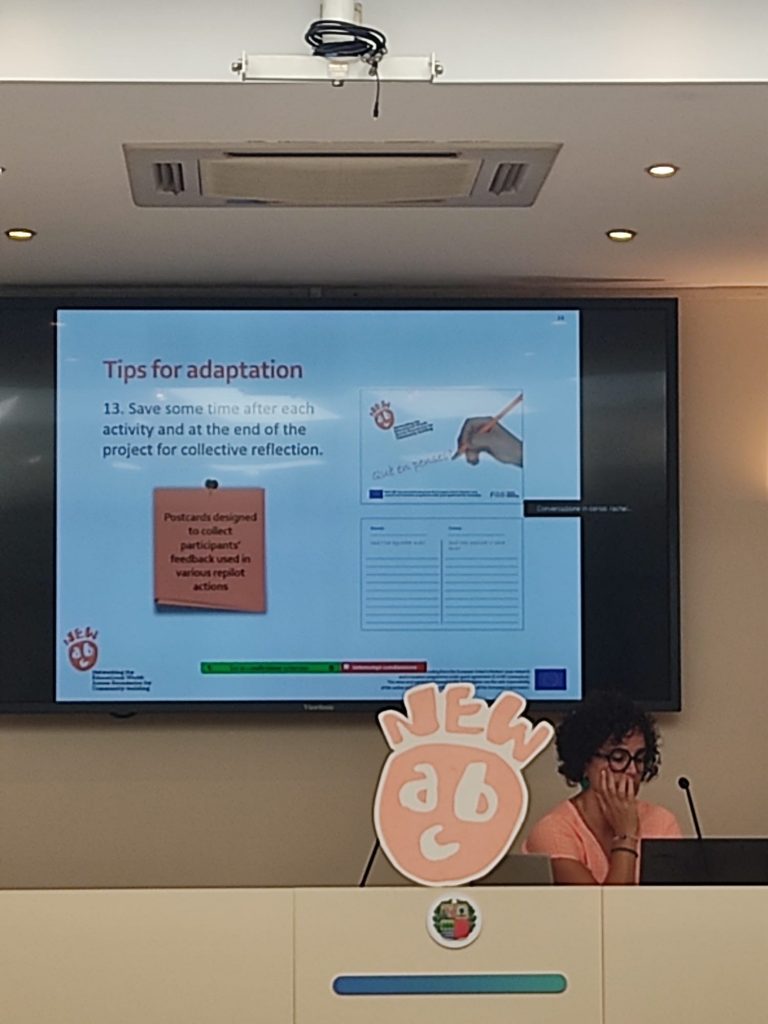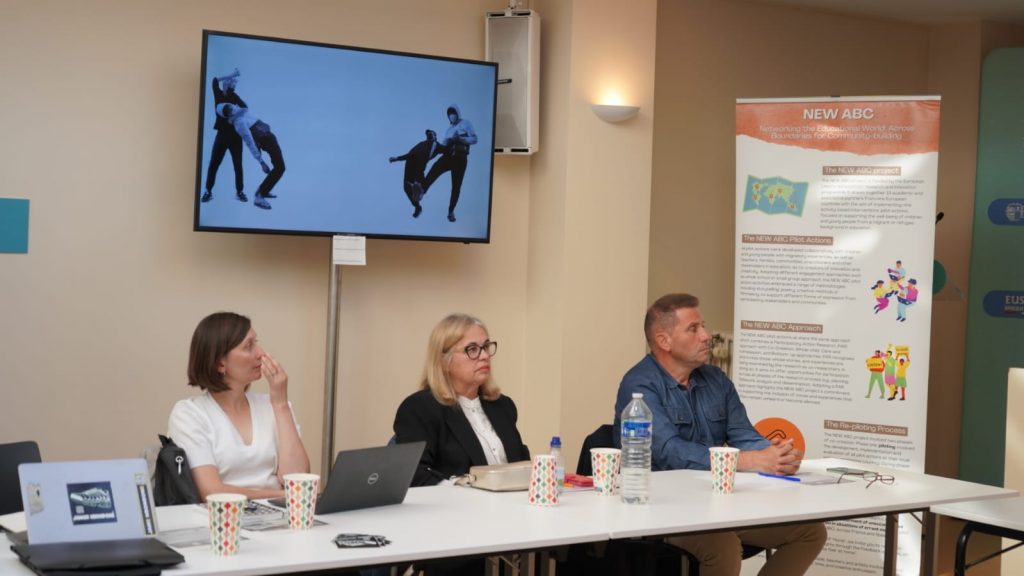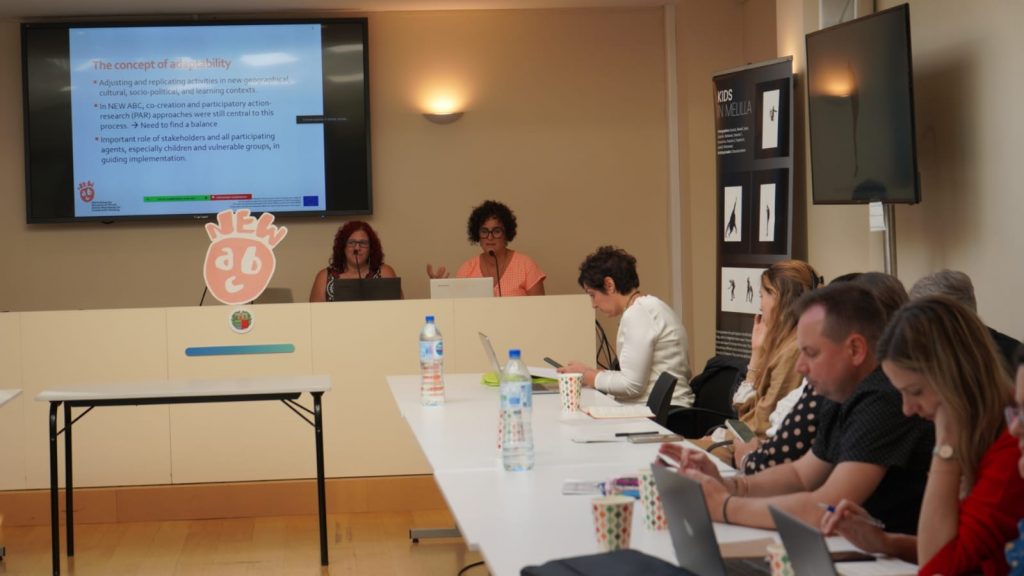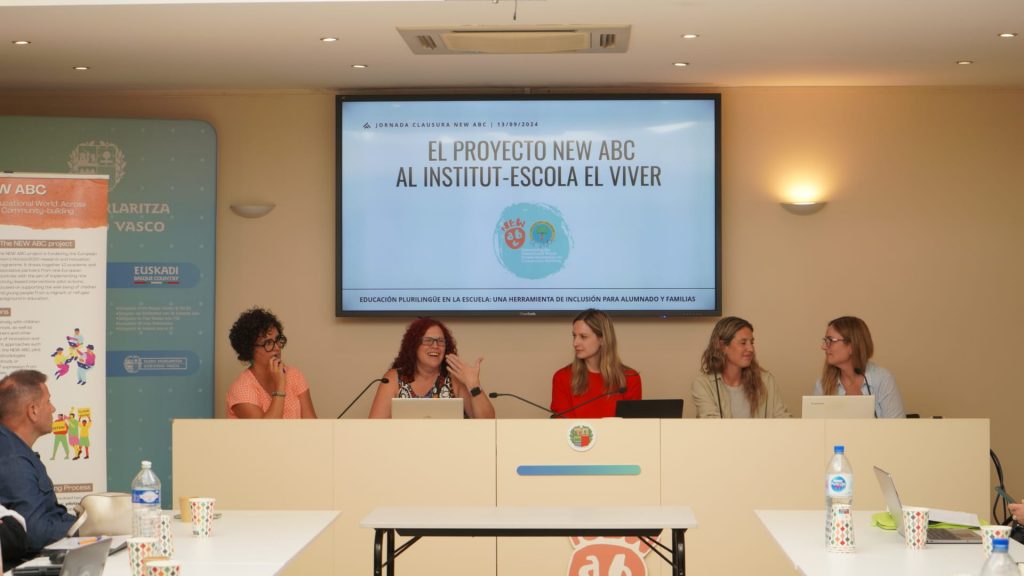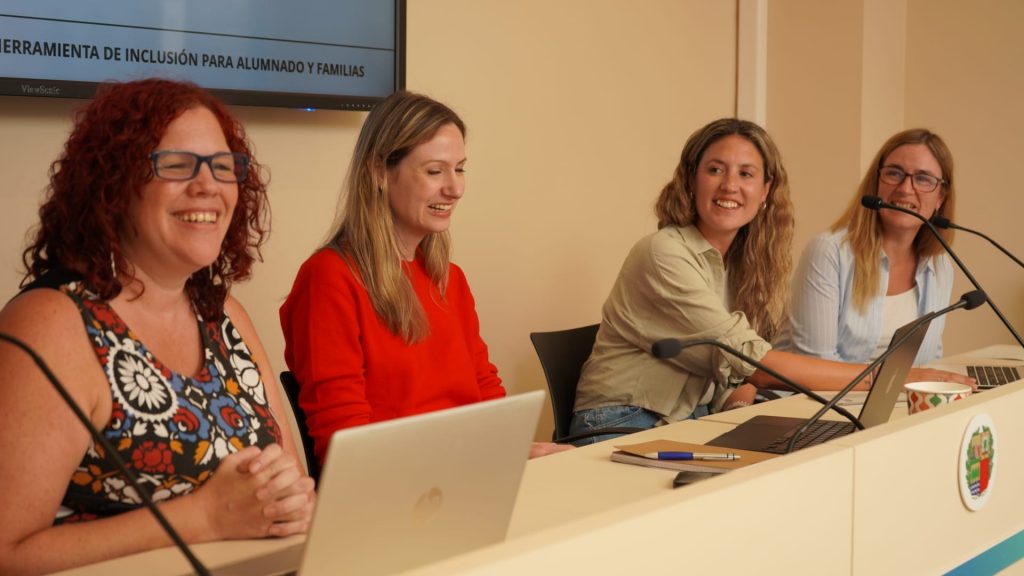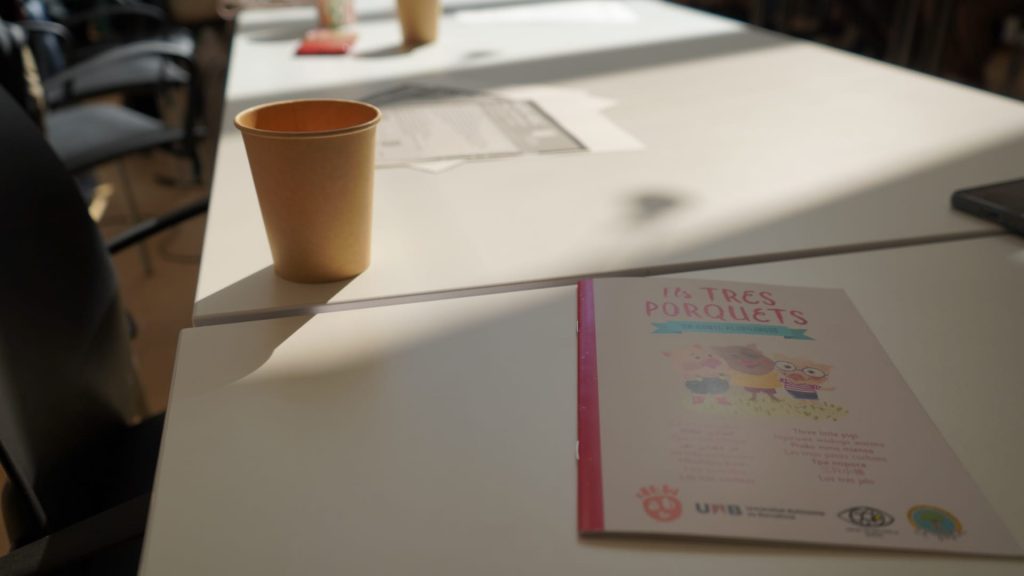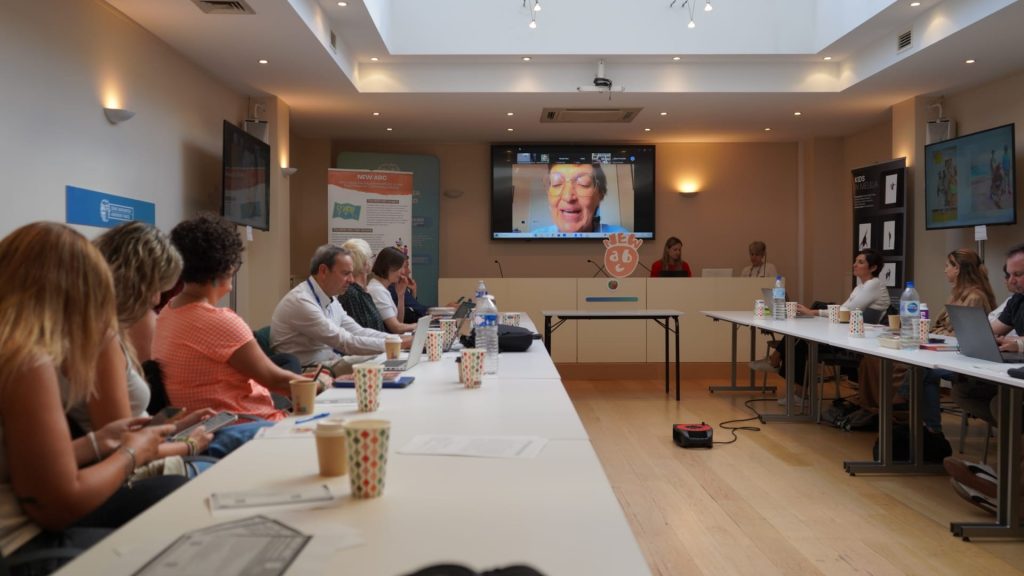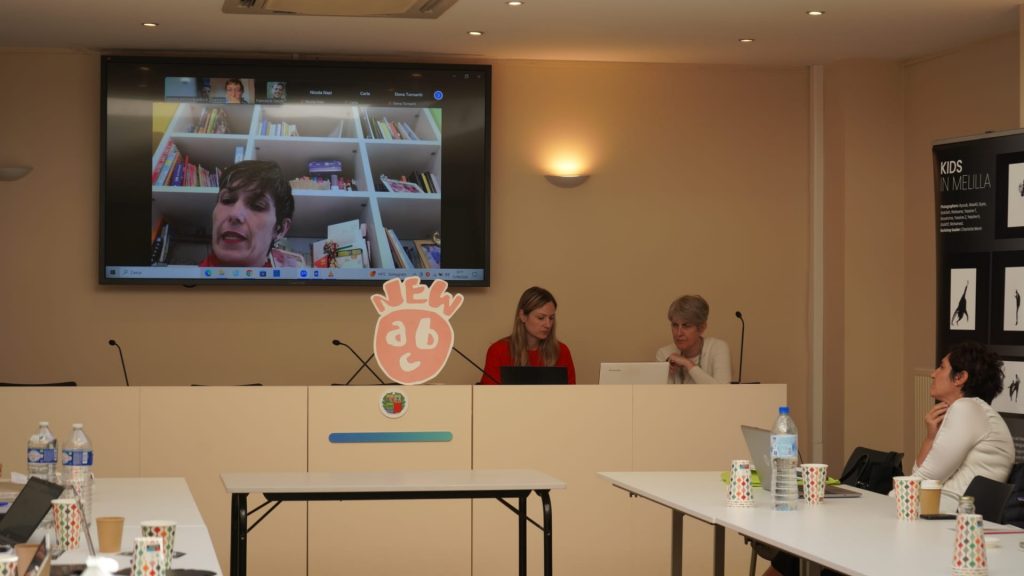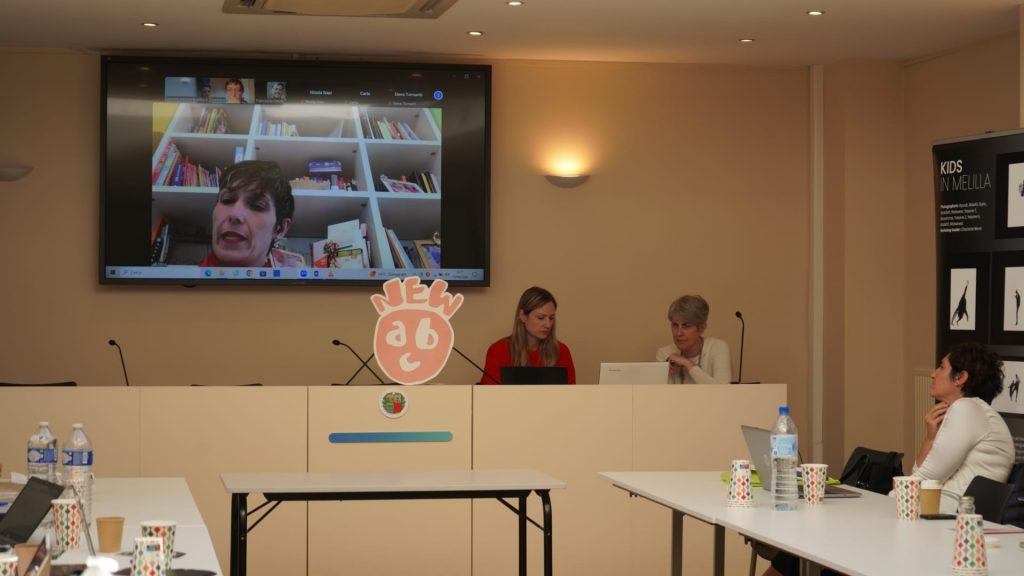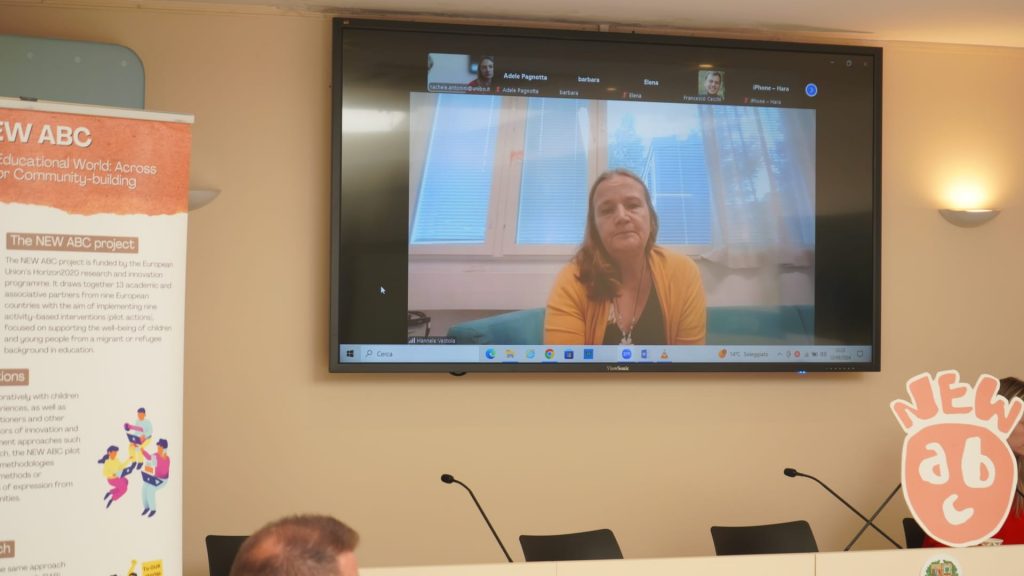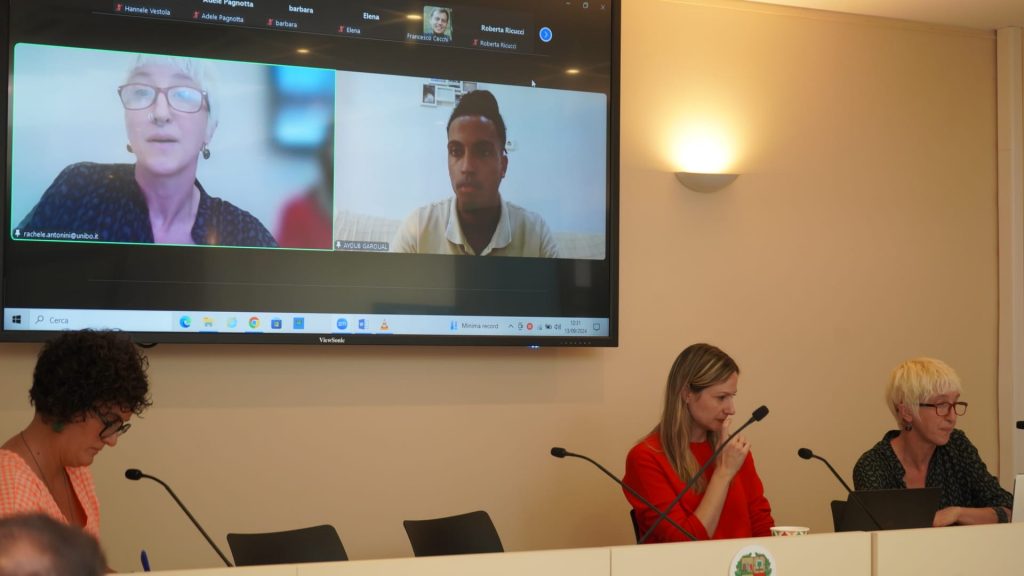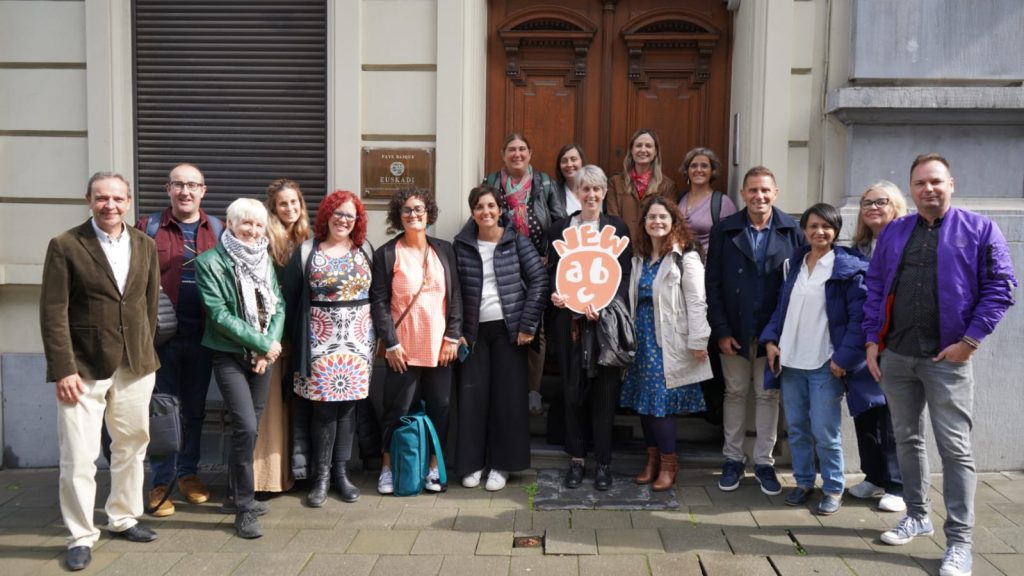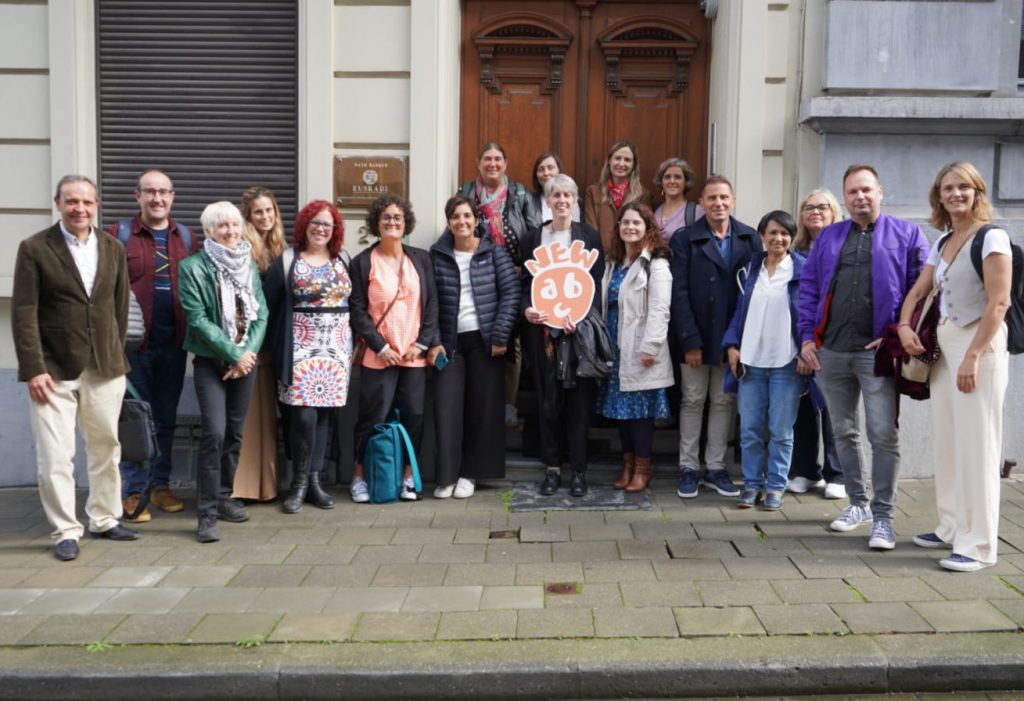
NEW ABC is in Brussels, at its Final Event
All partners of the NEW ABC consortium met today in Brussels to celebrate the final event of the project, at the delegation of the Basque Government. A range of stakeholders who have participated in the activities carried out during the project also attended the meeting and shared their experiences of participating in these activities.
During the day, a general overview of the results and impacts achieved was presented to the participants. The most important facts are summarised below.
From the beginning of the meeting, it was shown that the participatory action research and the co-creation approach followed in all the activities carried out in NEW ABC greatly impacted the participants: Feeling their voices are heard and taken into account made children and young people gain empowerment, autonomy, and a sense of belonging, particularly for those with a migrant or refugee background, who are not usually at the front line.
The adaptation of the activities to new geographical, cultural, socio-political, and learning contexts featured the second slot of the meeting. In NEW ABC, this adaptation took place when partners replicated the activities initially tested by other partners in their own context. This was a challenging experience, but undoubtedly crucial in learning how to make this adaptation. This has led to the development of several guidelines and tips to facilitate the process of adaptation for those actors who wish to replicate the activities. Many of these tips have to do with working with an open mind, i.e. the more flexibility and voice are given to the participants, and the more the place is left to the local protagonists and settings, the more enriching the experience will be for all participants, as well as for the organising actors.
The stakeholders’ session was very emotional as some teachers from a school in Barcelona (Spain) explained some of the activities they had carried out (e.g. translating the story of the Three Little Pigs) and the changes they had made in the school as a result of the lessons learnt, such as changing the signalling in the school and adding signals in different languages, or including family languages in the theatre plays they offer weekly. Different teachers from primary and secondary schools in Italy also offered their testimonials, explaining the approach they chose to include plurilingualism in the different subjects, and their request to continue their collaboration with the NEW ABC researchers of the University of Bologna, as they consider it very useful. A representative from the Aurinkopaja centre in Finland explained their experience with young refugees coming from Ukraine but finished with young people (all refugees or asylum seekers) from all over the world. “the methods of NEW ABC fit our project perfectly”, she stated.
A participant in a pilot action, Ayoub, who was in an irregular situation and living on the streets at the time the pilot action was conducted, also spoke about his experience. The activities carried out came at a very good moment for him and the other members of the group participating, all of them young people pursuing their dream of reaching Europe, but feeling abandoned. After taking part in NEW ABC, Ayoub managed to finish his studies and is now helping young people in the same situation as he was.
The meeting ended with a round table between the so-called sister projects of NEW ABC: Rachele Antonini, project coordinator; Roberta Ricucci, coordinator of Kids4alll; and Teresa Sorde, principal investigator of the REFUGE-ED project, as well as Ángel Fuentes, project officer of the three projects, from the European Research Executive Agency. Noora Eronen from the European Commission also contributed to the discussion. They talked about ways to continue the project activities and the sustainability of the activities. Among others, building the capacity of the communities the project is working with was presented as key to this, so that they can continue the activities after the projects end.
